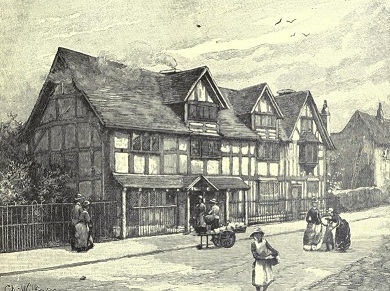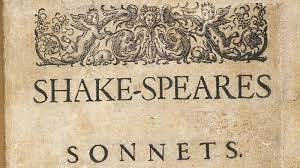
The Joker
A fictional character which I find strange but appealing is the Joker. This supervillain appears in DC Comics. He debuted in Batman #1. The Joker is the archenemy of Batman. He is a criminal mastermind, a psychopath whose strangest trait is that he does not want money or fame, but just wants to "watch the world burn." The Joker has been portrayed by numerous actors, be it on television or on the silver screen. Cesar Romero played the Joker in the 1966-68 TV show "The Batman". In the 2008 film, "The Dark Knight", Heath Ledger gave the character a whole new dimension - which eventually won him an Oscar.
Draco Malfoy
In the "Harry Potter' series, Draco Malfoy wasn't exactly a villain, even though he had a role to play in getting Hagrid fired and the murder of Buckbeak. He mocked Ron and his family several times, but even after all this, Draco wasn't bad. It's just that he was forced into all of this by his father, Lucius Malfoy. Lucius asked him to be enemies with Harry, made him a Death Eater and asked him to kill Dumbledore. But Draco didn't. Draco is also courageous and that is why I find Draco strange, but appealing.
Ready for a challenge
Professor George Edward Challenger, a character from the book, "The Lost World" is reckless, arrogant, short tempered, eccentri, but at the same time he plays a crucial role in the book. When challenged to prove dinosaurs exist, he leds a team- consisting of a hunter, a scientist and a journalist - to a remote plateau of the Amazon in South America. He hates journalist and actually has a "bodyguard" to "protect" him from them. He is also brave-he bags a live pterodactyl and is not afraid of unknown tribes. Though he is short, he is physically strong. These are the reasons why I conclude Professor Challenger is strange but appealing.
Twig, the troublemaker
One of the most strange but appealing characters I have read about is Twiggy (or Twig) from 'The Science of Breakable Things" by Tae Keller. Twig is almost indifferent to the people around her, except when it comes to her two friends, Natalie and Dari.
Twig is always ready to help her friends. Towards this end, she ends up making announcements about herself and her friends in front of a crowd and even gets herself involved with notorious things in school.
Although Twig helps Natalie many times, she often creates trouble for her as well. The reason I find Twig appealing is that she has a very good sense of humour She is indifferent to her wealthy upbringing and doesn't flaunt her wealth. She has strange opinion about her teacher, Mr. Neely, who also happens to be Natalie's father.
Dari is a very bright, Indian-origin girl. Twig almost always goes to the Principal's office for her behaviour, but always manages to leave without any repercussions.
While reading the book, I have often laughed out loud at how Twig is only focussed on helping Natalie, especially to win the egg-drop contest and to save her mother from depression.
Kylo Ren
A character who I find strange but appealing would be Kylo Ren. He is the primary antagonist in the "Star Wars" trilogy. Son of a famous space-smuggler Han Solo and royal princess Leia Organa, Kylo Ren feels betrayed when his parents send him to a Jedi temple. So, he explores the dark side with Darth Vader, an evil Sith lord as his idol.
Even though Kylo leads an evil empire, his powerful skill over the force appeals to me. He also battles with his overpowered red cross-blade in a graceful, yet startling manner. He is suave, and charming. I also like how after having control over such a large army, Kylo does not betray Rey and annihilates his entire personal squad of Knights called the "Knights of Ren". He also dies carrying a blue lightsaber- the weapon of a Jedi. Kylo is my favourite character from the "Star Wars" series and always will be.
Danny's father
A character that I will describe as strange but appealing is Danny's father in "Danny the Champion of the World" by Roald Dahl. In this book, Danny's father has many secrets. First of all, he is an eye smiler, which is quite fascinating as we rarely find an eye smiler in the real world. An eye smiler can never fake a smile whereas a regular smiler can do it easily. However, he has a very dark secret- he is a poacher, and he loves his indulgence. Due to his queer yet intriguing traits, I believe that Danny's father is a strange character and has been quite appealing.
The lovable Luna
Luna Lovegood from "Harry Potter is a character I take interest in but at the same time I find her a little strange. She and Hermione don't get along well but eventually they become good friends despite having different views. In the films, the character of Luna is portrayed by Evanna Lynch. She made Her first am her first appearance in "Harry Potter and The Order of the Phoenix She is shown as a determined friend because she supports Harry and believes his story of Lord Voldemort's return and even manages to persuade Rita Skeeter to interview him so that his views can be published on "The Quibbler, the magazine which Xenophilius Lovegood, Luna's father, owns.
She later joins Dumbledore's Army. Harry also forms a strong friendship with Luna. Later, in "Harry Potter and the Half-Blood Prince", Harry prefers Luna and Neville over a group of other female students who come to ask Harry to sit with them in another compartment. And Luna was one of the sole members of Dumbledore's Army, who answers the call to protect Hogwarts when the Death Eaters attack. In "Harry Potter and the Deathly Hallows", Luna remains loyal to Harry and Dumbledore even though she faces many hardships. Overall, she is a good, loyal trustworthy and a true friend.
Toby, the spy
A character that is strange yet is pleasing is Toby From the series "Mrs. Smith's Spy School For Girls". Toby is the only boy accepted in the centre"- a secret spy organisation which trains spies. He is accepted only because of his exceptional tech skills. He is a big nerd and loves tech but is also a cool spy. He goes on a few missions with Abby. Charlotte, and Izumi. He makes spy devices like spy phones which help you "buy time. He also goes on to the competition to Briar academy with his friends so if they win, they would be accepted in spy school as an exception as they are below 16. But they don't accept the offer in the end as Abby is paired with her nemesis Poppy-who has self-esteem issues and doesn't accept her friends or Toby. They end up opening their own secret government organisation called "Spy school 2.0".
The mysterious Snape
Severus Snape from the "Harry Potter series is a strange but appealing literary character. He is depicted as cold, calculating, sarcastic, and bitter. He strongly dislikes Harry. Snape is a Death Eater and the one who kills Dumbledore. He looks down upon people who cannot control their emotions and classifies them as weak. But just like a coin has two sides, there is another side to Snape as well. He is truly loyal to Dumbledore. He constantly protects Harry from unexpected dangers such as the ones Harry faces in his in first year at Hogwarts. Although he kills Dumbledore, it later turns out that he did so on Dumbledore's orders. Although he was bitter towards Harry's father. Snape continues to protect Harry. He was not liked by many, but still snape showed his loyalty by sacrificing his life. His character is the most layered character in the entire series.
Grandmaster Yoda
The most strange but appealing character I have ever seen is 'Grandmaster Yoda' in "Star Wars". He is short statured but is very old and wise. He has green skin, big ears, large eyes and a tendency to talk backwards. But don't judge him by his size. He is the Jedi Grandmaster, a living library and the greatest duelist of his time. He has such great force abilities that he can pick and throw a mountain top with one flick of his finger. He has taught every single Jedi in the universe a lesson. He can force project himself in any parts of the galaxy with ease. During the 'Clone Wars' he was a republic general and also one of the best. After the Clone Wars' when the Order 66 was issued by the Evil Emperor Darth Sidious and 'Great Jedi Purge', he himself went to fight the Sith lord and due to his old age and tiredness he had to escape. He went into exile in the remote planet of Deobagh for the betterment of the Jedis after the formation of the Evil Galactic Empire. But from there also he started giving instructions to other Jedis like Ezra Bridger, Kannan Jarrus, Obi-Wan Kenobi, and other surviving Jedis.
He also uses his vast knowledge of the force to live for a total 900 years. He dies soon after completing Luke's training, but he would still guide other Jedis in his force ghost form.
Artemis Fowl
I find the character of Artemis Fowl II appealing and strange. He is a 12-year-old Irish anti-villain in the series "Artemis Fowl" by Eoin Colfer. He possesses the highest tested IQ in Europe. He is known for his mischief and seeking help from the elves that live below the earth. As the story progresses, he uses his skills to help the elf community to keep themselves a secret from the real world.
Dr. Dolittle
I read the book "The Story of Doctor Dolittle" in my summer holidays. The doctor fits the description strange but appealing. The doctor is strange because he knows the language of animals and can talk to them. He is very kind and helpful to his pets and to all the animals. He also cures them.
Paddington
One of the most bizarre and attractive characters I have ever known is the Paddington bear from the film "Paddington". With a tilted and battered hat over his head and a small note dangling, he appears to be eccentric and humorous. He has come to London from the jungles of Peru, searching a British geographers family. He is adopted by a family in London. In their house, Paddington mistakes the toothbrushes for ear cleaners and cleans his ears comfortably with them, only to get the bristles sticky with ear wax. He even takes great swigs of a detergent liquid, thinking it to be marmalade (his favourite drink). He is also a voracious eater, who readily noshes sandwiches. He overflows the entire house with water, dashing on the stairs in the bath tub. When it comes to self-defense, he turns out to be an action-stuffed bear, making the foe go nuts. As a talkative bear with funny tactics and remarkable fighting skills, the strange and chubby Paddington never fails to conquer our hearts.
Mowgli
I think Rudyard Kipling's Mowgli is a strange character because he's not a regular 10-year-old, but he lives in a jungle and befriends animals! He has such an interesting history too, as he was stolen from his human family by Sher Khan and raised by a pack of wolves.
I like the way he fears humans and refuses to go to the village, when Bagheera wants him to. He dances with Baloo and gets the red flowers for the monkeys. In spite of his torn shorts and dirty hair and all his weirdness, I really think he is appealing because of his friendliness, spunk to try new things and imagination!
Picture Credit : Google





